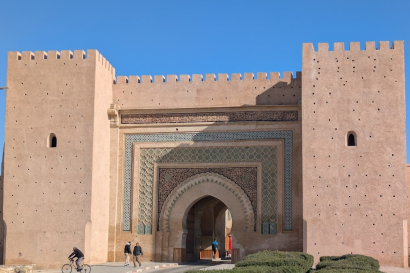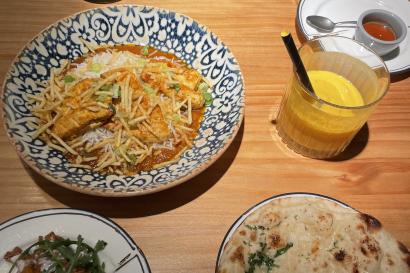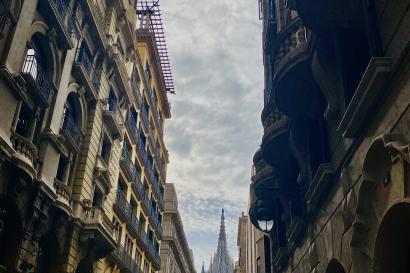Next week is already midterm week, which marks the halfway point of my time abroad. In fact, two months from today will be my first full day back in the States, which will be a culture shock of its own. Realizing I have almost two months down, but still two to go is a conflicted feeling for me. By now, I would say I’ve experienced the majority of the culture shock and also, conversely, fascination with the culture.
I’ll know I still have a lot to learn and experience, but there’s one thing that I know for sure: I was never meant to be a part of this culture. I’m constantly reminded that I’m an outsider. That’s not a bad thing. And that’s certainly not accusing anyone here of being unwelcoming or inhospitable. It’s just a simple truth, and it’s okay. It’s not a bad lesson either.
Too often we romanticize the idea of traveling somewhere and becoming “a part” of the culture. That’s a normal sentiment, of course. It’s human nature to yearn for belonging. But I was not meant to belong here. I can still be respectful towards, learn from, and assimilate as best as I can to the way of life here.
Personally, I believe there exists a boundary that I need to respect. I am okay participating when I am invited: when my host mom loans me a Kaftan for a special event, or when our program hosts a henna party for us. I’m not comfortable, however, buying a jalaba and wearing it in the street. Or claiming simply that I know what it’s like to be “Moroccan.” That would be inappropriate and incorrect. Yes, I have gotten a sense of Moroccan life, but I can only speak from my perspective, that perspective is of a white, Western, woman living in a largely non-white, non-Western society. There is no level of open-mindedness that would ever bring me to the same level. I could go through all of the motions, but the context behind them would never be the same, which is the key.
This is the problem Americans have when defining cultural appropriation. Whatever American culture is can arguably be adapted by anyone because it’s so ambiguous. That’s because America is what we always refer to as the “melting pot” of religions, backgrounds, and identities. A place like Morocco has a culture that is much less ambiguous, it’s quite homogenous. It is distinctly centered on Islam and a blend of North African and Middle Eastern customs and identities. I can’t identify with any of these cultural elements; thus, I can only observe them externally. I’m grateful for this opportunity, to have another culture so closely shared with me, but again, I cannot claim to fully understand it.
On top of all of this, I want to make one other thing clear: I’m not here to speak about how anyone else should live. Who’s to say my way of life is any better? They might say the same when looking at ours. That’s why I’ve chosen not to elaborate on some of my deeper frustrations. It’s been good to have some of my beliefs tested, and I think for the best experience, it’s better to enter a country like Morocco without any preconceived notions tainted by the opinions and biases of another outsider.
I think a lot of Westerners come to countries like Morocco for short periods of time thinking they’re somehow going to change the world for the better. I am not here to tell people how to make their society “better.” They’re not asking me for it. I’m happy to engage in dialogue with the Moroccans I meet when appropriate. I’ll admit, it can still be a tricky and frustrating road to navigate, but as a 20-year-old American college student, I’m here to learn. I’m not here to change anyone but myself.

Camille Smith
<p>Assalamu Alaikum, Bonjour, Hello! I'm Camille and I'm currently in my second year studying Political Science and International Studies at Loyola University Chicago. I'm thrilled to be spending my semester in Rabat, Morocco and hope you all enjoy hearing about my journey! Expect bad puns and lots of pictures of food.</p>









